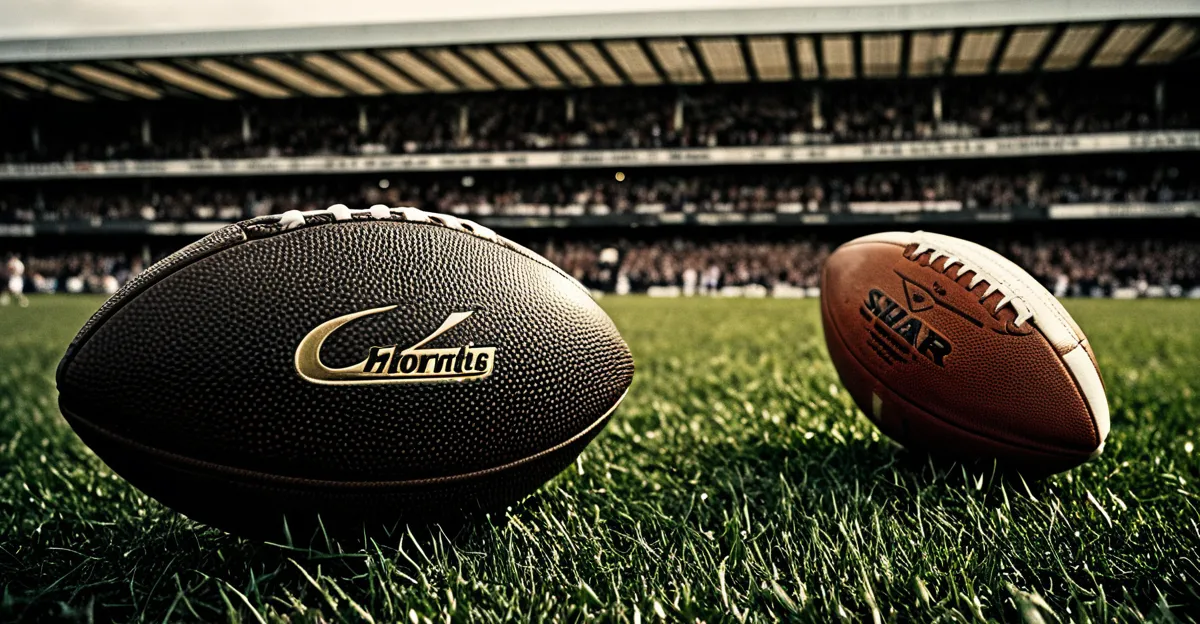Key Historical Events Influencing UK Sports
The Industrial Revolution fundamentally transformed the landscape of UK sports by reorganizing leisure time and providing a structured environment for recreational activities. With the rise of factories and urban centers, workers experienced more regulated working hours, which allowed for scheduled sporting events. This shift helped formalize competitions and increased public engagement, marking a pivotal moment in the UK sports history timeline.
During the 19th century, there was a significant push towards the codification of major sports such as football, rugby, and cricket. These sports transitioned from loosely played games with varying local rules to standardized formats with clear regulations. This period saw the drafting of official rules by governing bodies, setting the foundation for modern competition in the UK. Such sporting milestones reflect the era’s commitment to organization and fairness, critical for the wide acceptance and longevity of these sports.
Also to read : How Might Participating in UK Sports Impact Mental Health?
Another influential factor in UK sports history is the role of colonialism. British imperial expansion facilitated the global spread of UK sports practices, exporting games like cricket and football to continents including Asia, Africa, and Australia. This diffusion not only popularized these sports internationally but also influenced the UK’s perception and evolution of its own games. The reciprocal relationship between British sports and their overseas counterparts left a lasting legacy, underscoring the importance of the empire in shaping the modern face of historical events in UK sports.
Social Class Systems and Their Role in UK Sports Development
The social class UK sports dynamic played a crucial role in shaping the character and development of British sports. A central tension existed between amateurism vs professionalism, which strongly influenced the trajectory of football, cricket, and rugby. Amateurism, often championed by the upper classes, emphasized playing for the love of the game without financial reward, reinforcing ideals linked with social status and values upheld by the elite. In contrast, working-class communities pushed for professionalism, reflecting a need to earn livelihoods from sport and driving the commercialisation of these games.
Also to see : What Are the Impacts of UK Sports on Cultural Identity?
Public schools and the upper class exerted significant influence over early sports traditions. These institutions not only structured the rules but also cultivated the spirit of amateur competition, shaping the codes and ethics that defined many sports. Their control perpetuated class divides in sport, with access and participation often limited by social standing. Meanwhile, working-class communities rapidly transformed sports into professional, revenue-generating industries, making football and rugby league emblematic of this shift. The divide between amateur and professional status caused tensions, notably seen in rugby’s split into union and league codes, highlighting how class interests molded the sport’s evolution.
Consequently, the interplay between social class, amateurism, and professionalism was pivotal in defining British sporting milestones UK. It influenced governance, participation, and the commercial structures of sport, thereby embedding social distinctions into the fabric of UK sports culture. Understanding these class divides illuminates how sports in the UK evolved not merely as leisure activities but as arenas of social identity and economic opportunity.
Influence of Educational Institutions on Sports Formation
Educational institutions played a pivotal role in shaping the early framework of UK sports. Public schools sports development significantly contributed to the establishment of formal rules and the standardization crucial for many sports’ growth. Schools like Rugby, Eton, and Harrow not only codified game regulations but also fostered a spirit of fair competition and teamwork. This process was essential in transforming local, informal games into organized sports with universally recognized rules.
Beyond public schools, schools and sports UK benefited greatly from university sports innovations. Elite universities such as Oxford and Cambridge introduced structured intercollegiate competitions that heightened the profile and competitive nature of sports. These rivalries generated enthusiasm and encouraged the refinement of rules, which often filtered down to younger players and broader society. University settings served as experimental grounds for new formats and styles of play, accelerating the evolution of sports culture.
Grassroots development was another critical layer. School-based sport programmes acted as entry points for many young athletes, instilling early skills and sportsmanship values. By integrating sport into education, these programmes helped embed physical activity within British culture, thus supporting long-term participation and nurturing future talents. The combination of rule-making, competition, and grassroots involvement solidified educational institutions as foundational to the UK sports history timeline and key sporting milestones UK.
Legislation, Governance, and Organisational Frameworks
Legal and organisational structures have been central in shaping the trajectory of UK sports. One critical milestone was the establishment of the Football Association (FA) in 1863, which marked a turning point in sports governance UK. The FA’s formation introduced a unified set of rules for football, ending regional variations and disputes, thus advancing the UK sports history timeline. This codification underpinned consistent competition and helped football grow into a nationally recognised sport.
Another significant legislative development was the Gaming Act of 1845, which affected betting and gambling associated with sports events. This legislation was pivotal in curbing corrupt practices, promoting fairness, and protecting the integrity of competitions. Over time, further historical sport regulations have been introduced, addressing issues such as player eligibility, safety standards, and inclusivity. These rules helped foster a more equitable and organised sporting environment.
Beyond legislation, the creation of governing bodies across different sports ensured sustained oversight and evolution. Organisations like the Rugby Football Union and Marylebone Cricket Club played instrumental roles in formalising rules and addressing disputes. These bodies were also central to regulating fair play and inclusivity, reflecting changing social attitudes and advancing participation across classes and genders. Together, legislation and these sports governance UK frameworks represent key pillars in the development of modern British sport.
How Colonialism and Empire Exports Shaped UK Sports Globally
The British colonial sports legacy profoundly influenced the global landscape through the exportation of key UK games such as cricket, football, and rugby. These sports were introduced across vast regions of the British Empire, from Asia to Africa and Australia, becoming integral to the recreational and social life of many colonised societies. This global spread of UK sports was not merely a cultural imposition but a complex exchange that shaped both the empire and Britain’s own sporting identity.
Cricket, for example, became deeply rooted in countries like India, the West Indies, and Australia, where it evolved distinct playing styles and passionate followings. Similarly, football was adopted and adapted in colonies, transforming into a global phenomenon far beyond its British origins. Rugby also gained footholds in several territories, further illustrating the empire’s reach in shaping athletic traditions worldwide.
Interestingly, this process of exporting sports was reciprocal. Colonised nations influenced British sport practices by introducing new tactics, fostering international competition, and broadening the cultural meanings attached to these games. The enduring legacies of empire and sport persist today, with former colonies often dominating international competitions and redefining the narrative within the global spread UK sports context.
Together, these historical events UK sports highlight how colonialism served as a catalyst for the internationalisation of British sport, embedding UK games within a global sporting framework and creating a shared cultural heritage that continues to evolve. This enduring connection underscores the important role of empire in shaping the UK sports history timeline and notable sporting milestones UK on a worldwide scale.






